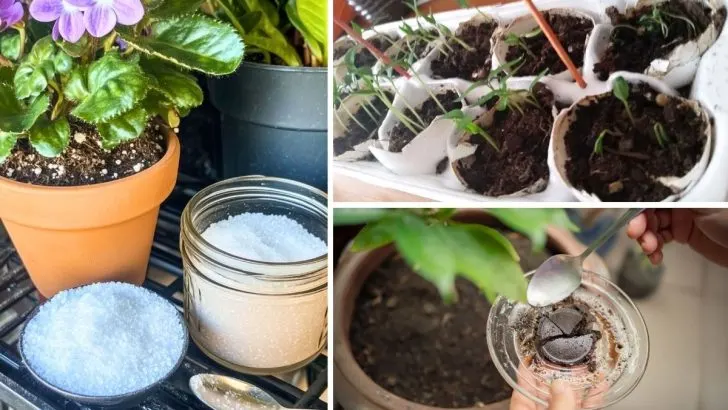Embarking on your organic gardening journey can be both exciting and rewarding. With a few clever tricks up your sleeve, you can enhance the health and productivity of your garden.
Here are 12 essential hacks to guide you through the process, ensuring your plants thrive naturally and sustainably.
Compost Tea Fertilizer
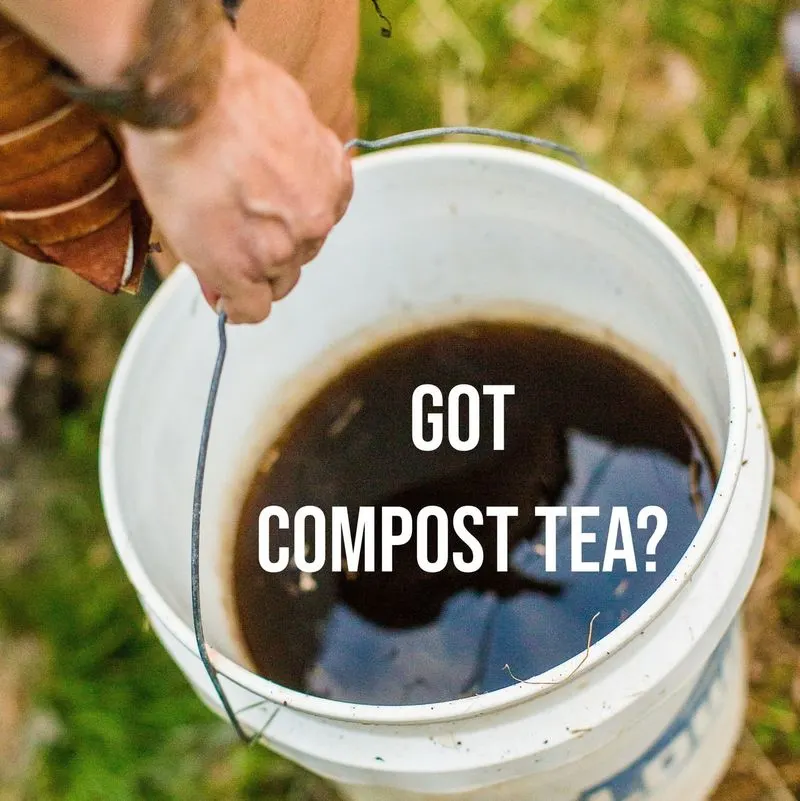
Transform your kitchen waste into liquid gold for your garden. Compost tea is a nutrient-rich solution that boosts plant growth and soil health. Steep compost in water for several days, strain it, and apply it to your plants.
This natural fertilizer not only provides essential nutrients but also improves soil microbes and suppresses diseases. Cost-effective and easy to make, compost tea is a sustainable alternative to chemical fertilizers, promoting healthy and vibrant growth in your garden. Just remember to use well-decomposed compost to ensure the best results.
Natural Pest Control with Neem Oil
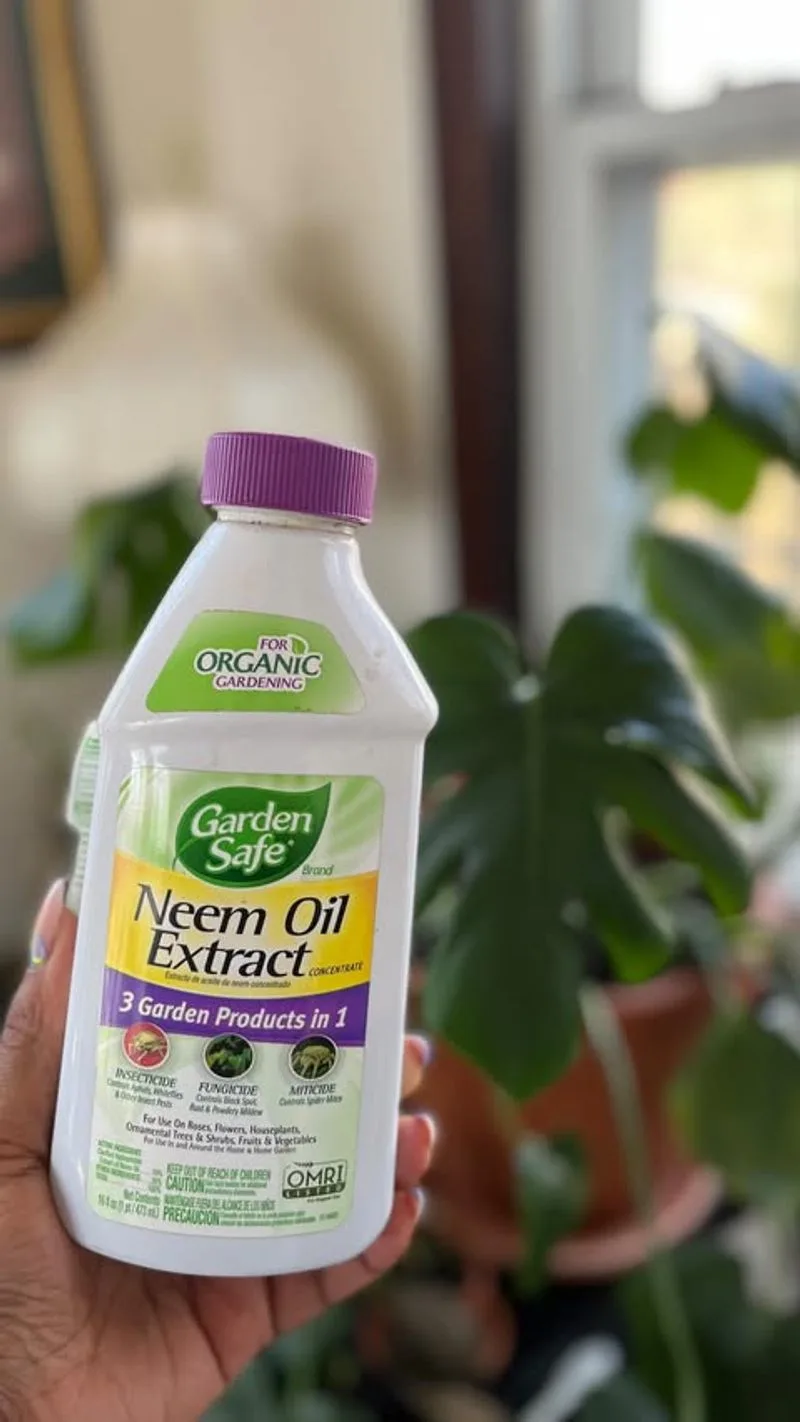
Protect your plants from pests using neem oil, a natural insecticide derived from neem tree seeds. It’s effective against aphids, mites, and caterpillars, disrupting their life cycles without harming beneficial insects.
Mix the oil with water, add a few drops of dish soap, and spray directly on affected plants. This eco-friendly solution not only controls pests but also enhances plant health.
Regular application ensures ongoing protection. Neem oil is a must-have in organic gardening, offering a safe and non-toxic alternative to chemical pesticides.
DIY Eggshell Seed Starters
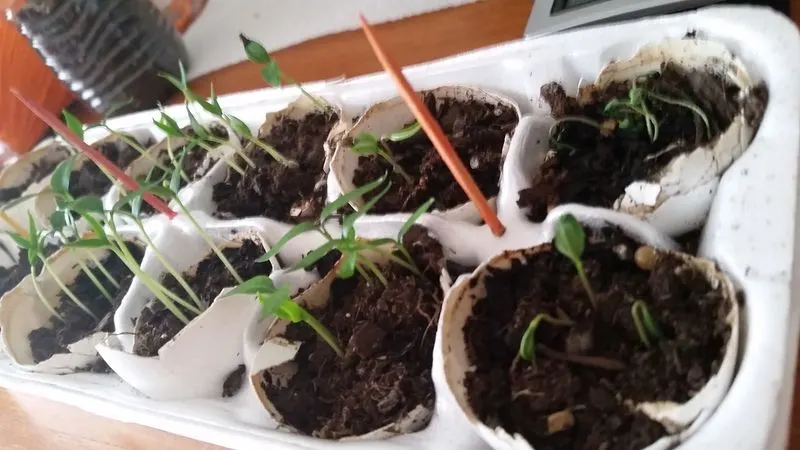
Recycle eggshells into seed starters, creating a zero-waste solution for your garden. Simply fill empty eggshells with soil, plant your seeds, and place them in a sunny spot.
The shells provide calcium and other nutrients as they decompose, benefiting young plants. When seedlings are ready, plant them directly into the ground with the shell, which will continue to nourish the plant.
This method not only reduces waste but also supports healthy growth from the start, making it an excellent hack for beginner gardeners.
Coffee Grounds for Acid-Loving Plants
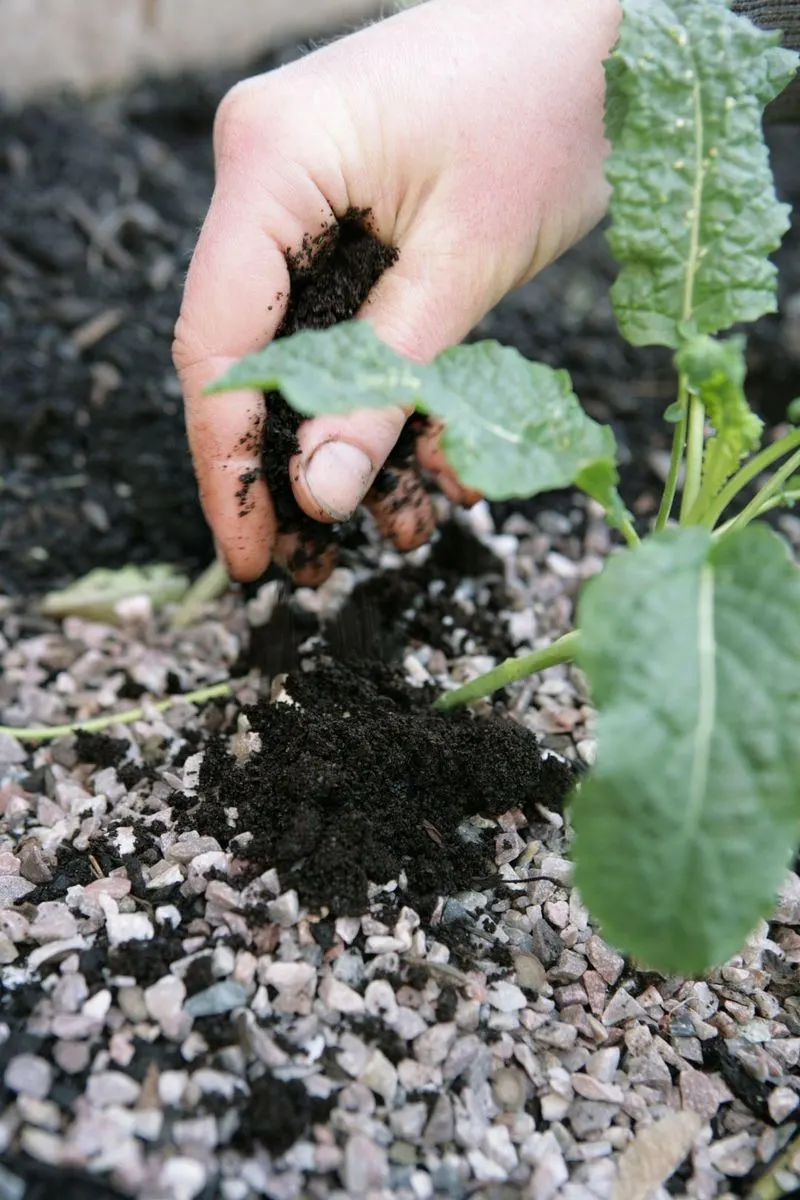
Use leftover coffee grounds to enrich the soil for acid-loving plants like blueberries and azaleas. The grounds increase soil acidity and add nitrogen, promoting lush growth.
Scatter them around the base of your plants or mix them into the soil. Besides being a natural fertilizer, coffee grounds help improve soil structure and attract earthworms, enhancing overall plant health.
This simple, cost-effective hack utilizes waste from your morning routine, contributing to a sustainable gardening practice while benefiting your plants.
Banana Peel Fertilizer
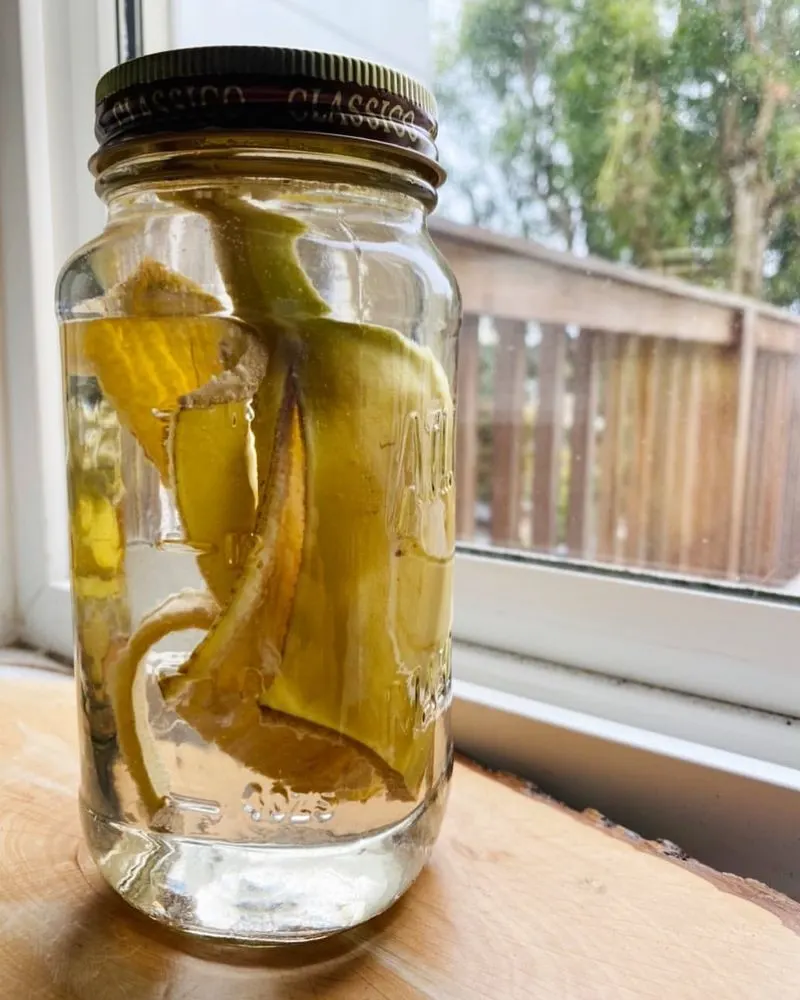
Banana peels are rich in potassium, an essential nutrient for plant growth. Use them to create a natural fertilizer by burying peels in the soil near your plants.
Over time, the peels decompose, releasing nutrients that foster strong root development and flowering. Alternatively, soak peels in water to create a liquid fertilizer.
This method is particularly beneficial for roses, tomatoes, and peppers. Utilizing banana peels reduces waste and provides a cost-effective way to nourish your garden naturally.
Mulching with Grass Clippings
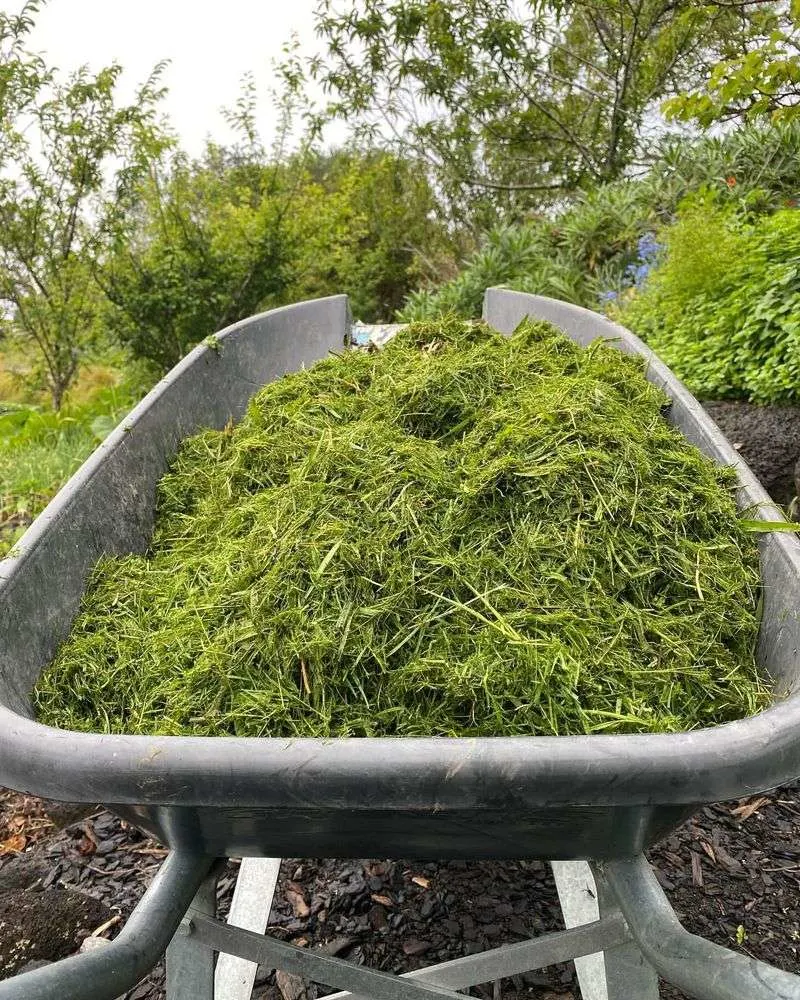
Repurpose grass clippings from your lawn as mulch to retain soil moisture and suppress weeds. Spread an even layer around your plants to shield the soil from too much sun, reducing evaporation.
As the clippings break down, they add nutrients to the soil, enhancing its fertility. This method not only recycles garden waste but also helps maintain a stable soil temperature, promoting healthy plant growth.
Grass clipping mulch is an excellent, sustainable option for organic gardeners looking to make the most of their resources.
Attract Beneficial Insects with Flowers
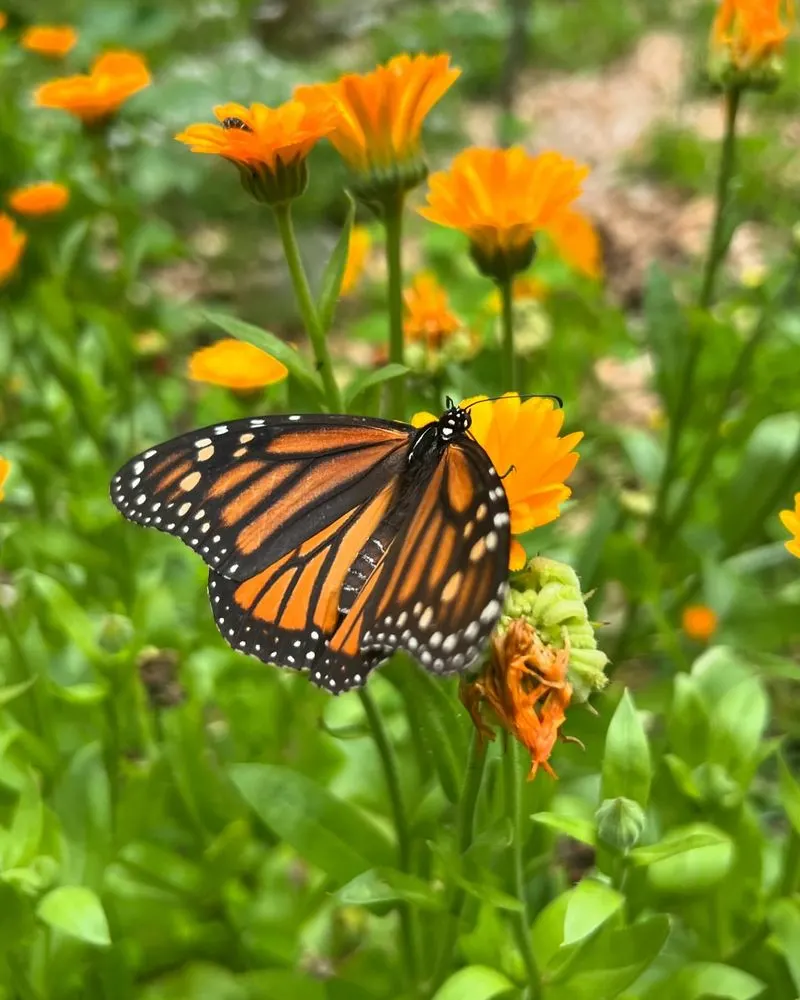
Enhance your garden’s ecosystem by planting flowers that attract beneficial insects like bees and ladybugs. These insects play a crucial role in pollination and controlling pest populations.
Marigolds, daisies, and sunflowers are excellent choices, providing nectar and habitat for these helpful creatures. By encouraging beneficial insects, you naturally reduce the need for chemical pesticides and support biodiversity.
A flourishing garden filled with diverse plant life creates a balanced environment where plants can thrive organically.
Epsom Salt for Plant Boost
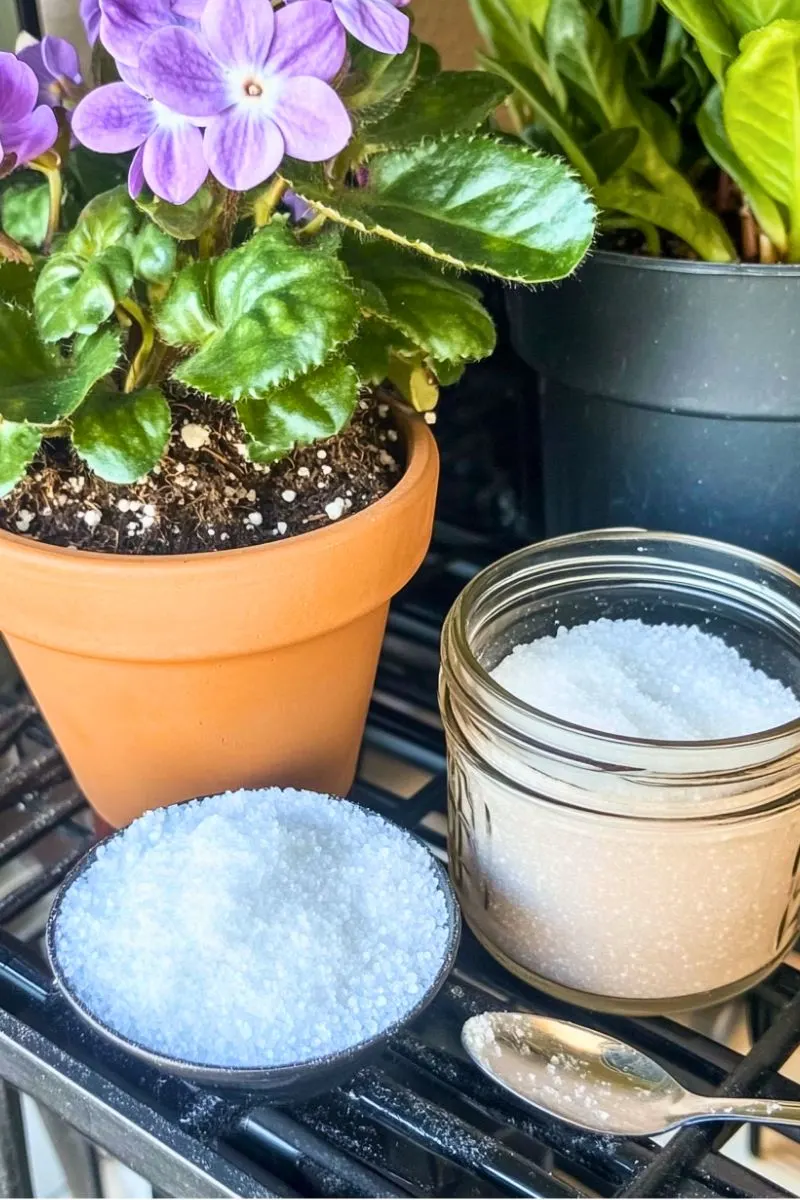
Epsom salt, rich in magnesium and sulfate, can enhance plant growth and improve flowering. Dissolve it in water and spray on foliage or sprinkle directly around plant bases. This boosts chlorophyll production, leading to greener, healthier plants.
Particularly beneficial for tomatoes, peppers, and roses, Epsom salt aids in nutrient absorption, promoting robust growth and abundant blooms. Incorporate this simple, affordable hack into your gardening routine for vibrant, thriving plants without resorting to synthetic fertilizers.
Organic Weed Control with Vinegar
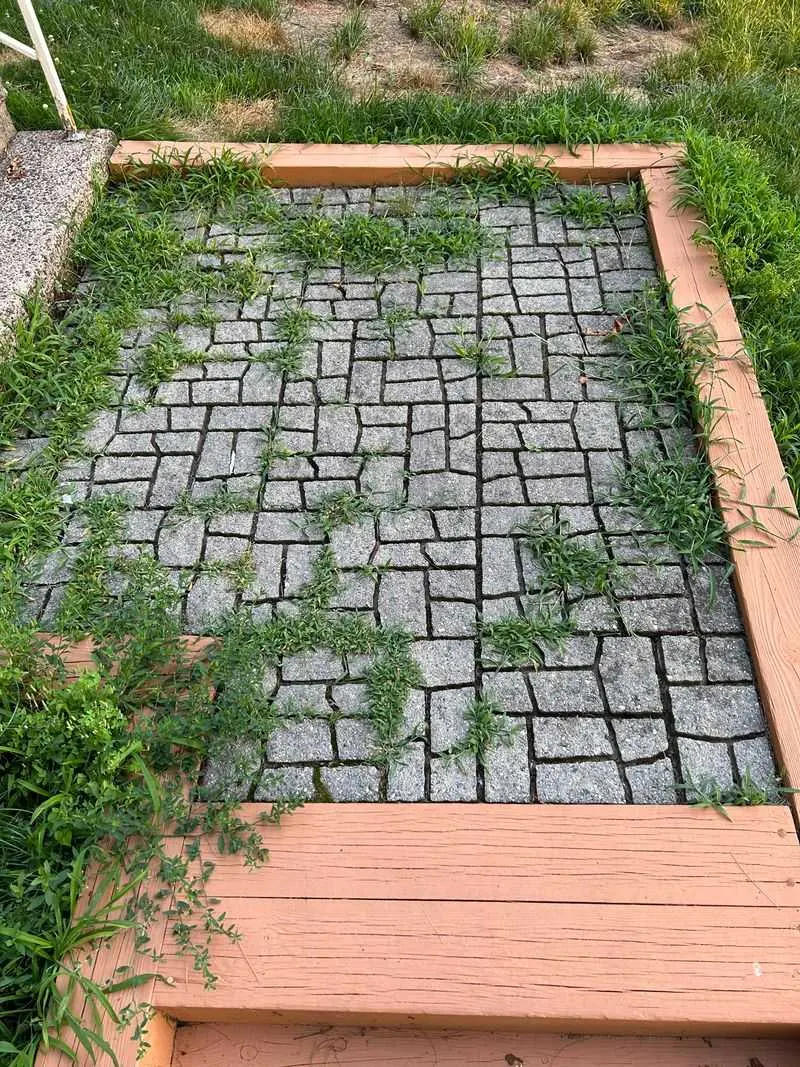
Tackle weeds naturally using vinegar, an effective organic weed killer. The acetic acid in vinegar draws moisture from weeds, causing them to wither. Spray directly onto leaves on a sunny day for best results.
Vinegar is especially useful for driveways and pathways, where you want to avoid chemical herbicides. This natural solution is safe for pets and children, providing peace of mind while maintaining a tidy garden. Regular applications keep stubborn weeds at bay, ensuring your plants have space to flourish.
Grow Companion Plants
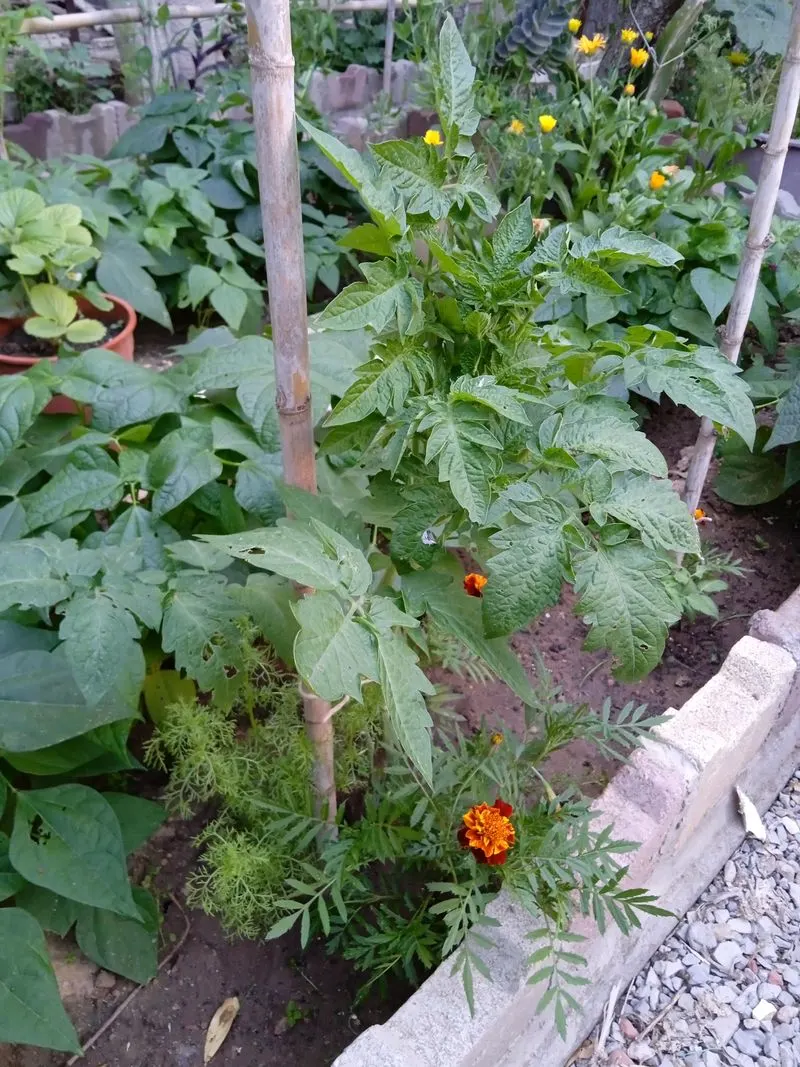
Maximize your garden’s potential by using companion planting, where certain plants grow better together. For example, plant basil near tomatoes to repel pests and enhance flavor. Similarly, marigolds can deter nematodes when planted with vegetables.
Companion planting optimizes space and resources, promoting healthier plants and higher yields. It encourages biodiversity, attracting beneficial insects and improving pollination. By understanding plant relationships, you can create a harmonious garden environment where plants support each other’s growth and thriving.
Rainwater Harvesting
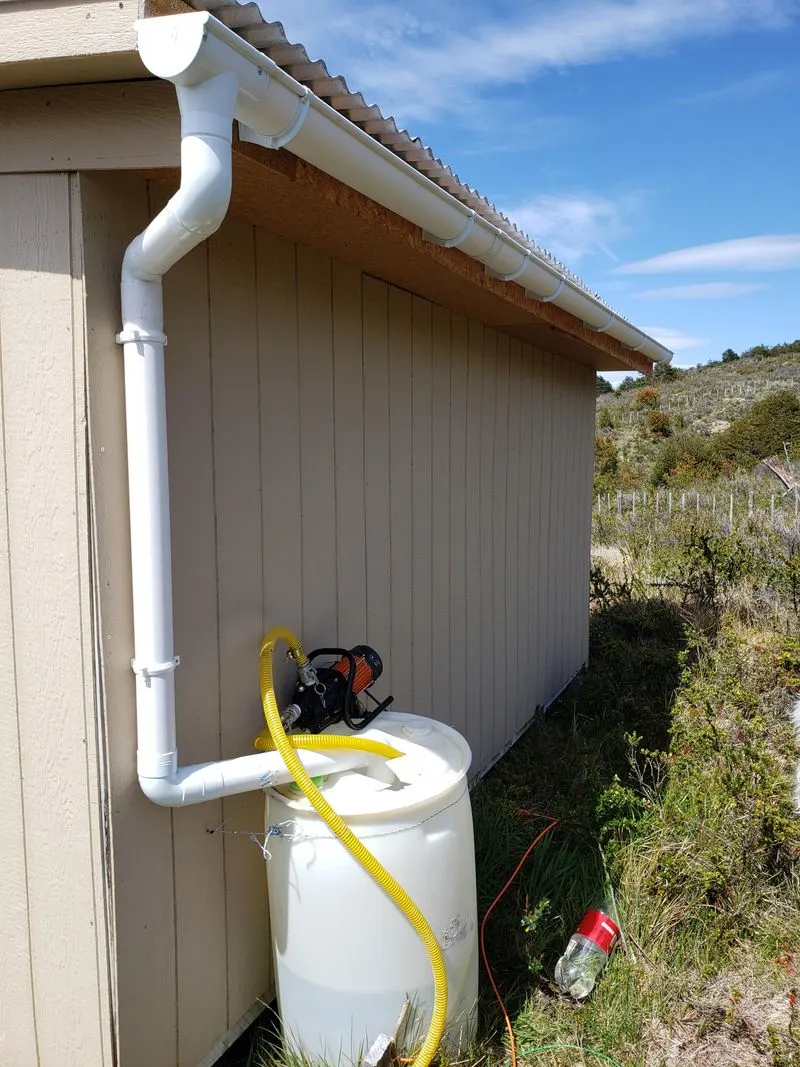
Conserve water and reduce your garden’s environmental impact by harvesting rainwater. Set up a rain barrel to collect water from your roof, providing a sustainable source for watering plants. This reduces reliance on municipal water, saving money and energy.
Rainwater is naturally soft and free of chemicals, making it ideal for garden use. Employing this method supports eco-friendly gardening practices, ensuring your plants receive the hydration they need while preserving natural resources.
Create a Bug Hotel
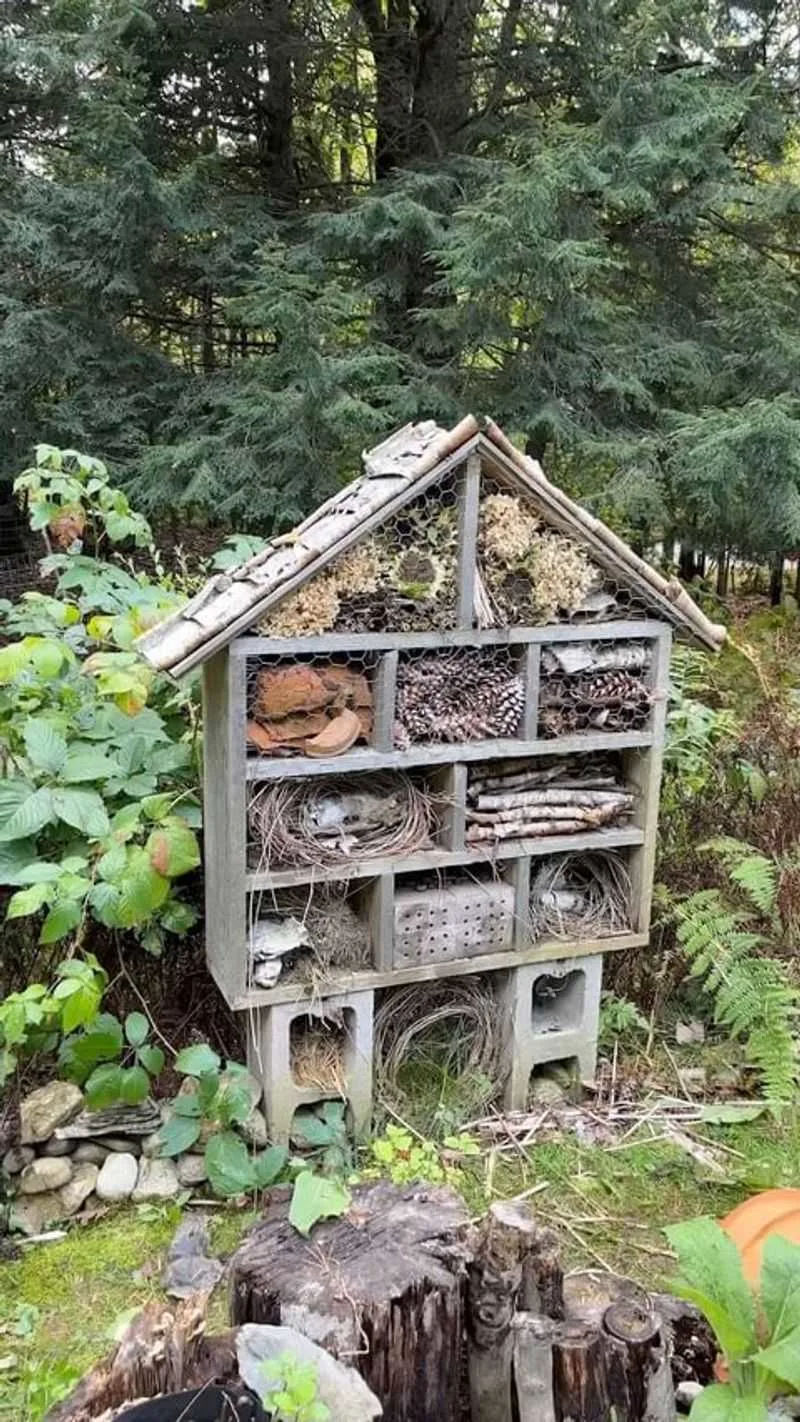
Invite beneficial insects to your garden by creating a bug hotel, a structure filled with natural materials that provide shelter.
Use items like pine cones, sticks, and bark to attract pollinators, pest predators, and decomposers. Place the bug hotel in a quiet corner of your garden, where insects can safely nest and hibernate.
This enhances biodiversity, reducing the need for chemical interventions. A thriving population of beneficial insects supports plant health and productivity, making your garden a vibrant, balanced ecosystem.

